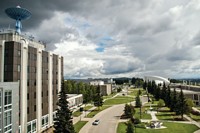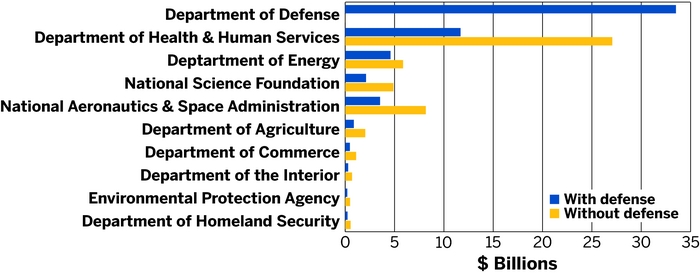Advertisement
Grab your lab coat. Let's get started
Welcome!
Welcome!
Create an account below to get 6 C&EN articles per month, receive newsletters and more - all free.
It seems this is your first time logging in online. Please enter the following information to continue.
As an ACS member you automatically get access to this site. All we need is few more details to create your reading experience.
Not you? Sign in with a different account.
Not you? Sign in with a different account.
ERROR 1
ERROR 1
ERROR 2
ERROR 2
ERROR 2
ERROR 2
ERROR 2
Password and Confirm password must match.
If you have an ACS member number, please enter it here so we can link this account to your membership. (optional)
ERROR 2
ACS values your privacy. By submitting your information, you are gaining access to C&EN and subscribing to our weekly newsletter. We use the information you provide to make your reading experience better, and we will never sell your data to third party members.
Policy
Help For Universities
by Rudy Baum,
December 15, 2008
| A version of this story appeared in
Volume 86, Issue 50
DURING THE PRESIDENTIAL campaign, Barack Obama promised that if elected he would work to double over 10 years the budgets of the agencies primarily responsible for basic research in the physical sciences—NSF, NIST, and DOE's Office of Science. Despite the extraordinarily bad economic conditions the U.S. now faces, many observers believe that Obama will work to make good on that pledge once he becomes president.
With the U.S. economy now in what appears to be free fall, President-Elect Obama has begun to unveil his plans for a massive economic stimulus package. His plans, outlined in very general terms in a radio address on Dec. 5, should be of considerable interest to the chemistry enterprise because they focus on energy efficiency, infrastructure, schools, and information technology.
Obama promised to focus spending on four main areas. One would be a "massive effort to make public buildings more energy efficient," he said. Another would be "the single largest new investment in our national infrastructure since the creation of the federal highway system in the 1950s." It would also include a "sweeping effort to modernize and upgrade school buildings" across the nation.
And, Obama said, "as we renew our schools and highways, we will also renew our information superhighway. It is unacceptable that the U.S. ranks 15th in the world in broadband adoption. Here, in the country that invented the Internet, every child should have the opportunity to get online." Various estimates of the cost of the package range from $500 billion to $1 trillion.
These seem to me to be worthwhile investments. I am also aware that there are many constituencies clamoring for federal assistance, from the Big Three U.S. automakers to most of the states. But I would like to suggest another specific target for economic assistance for the incoming Obama Administration to focus on: the country's great state research universities. These institutions are essential to the nation's health and welfare, and they are desperately hurting (see page 7).
Peter J. Stang, a chemistry professor at the University of Utah and the editor-in-chief of the Journal of the American Chemical Society, recently told me that his university faces as much as a 15% cut in funding in the coming year. At the meeting of the ACS Board of Directors during the first weekend in December, ACS President Bruce Bursten, who is the dean of the College of Arts & Sciences at the University of Tennessee, said state funding for education in Tennessee will be reduced by $150 million by July 1, 2009.
I did a Yahoo search on "University of Tennessee budget" and found a UT website with a story on university President John D. Petersen's comments to a meeting of a committee of its trustees. Petersen anticipates that the state cuts will result in a $48 million to $72 million reduction in the university's budget.
At the University of California, the 2008–09 budget reflects a $48 million year-over-year cut in state funding for the UC system and requires another $100 million in internal savings to cover cost increases not funded by the state. Gov. Arnold Schwarzenegger has proposed another $65.5 million midyear cut, according to the UC website.
A 7.4% increase in student fees and $28 million of savings in administrative costs are part of the solution already in place at UC. Still not covered, however, are growth in student enrollment, faculty and staff salary and benefit cost increases, utility cost increases, and improvements in graduate student support.
Search on almost any state university budget and you will find reports of similar dire economic conditions.
Doubling federal support for basic research in the physical sciences over 10 years won't accomplish nearly as much as it should if over the same period we dismantle much of the intellectual infrastructure required to carry out that research. That is a real possibility if these kinds of cuts in the budgets of state universities are carried out.
Thanks for reading.
Views expressed on this page are those of the author and not necessarily those of ACS.




Join the conversation
Contact the reporter
Submit a Letter to the Editor for publication
Engage with us on Twitter